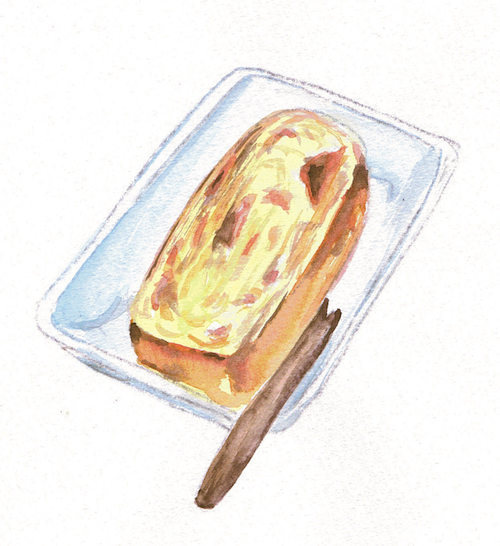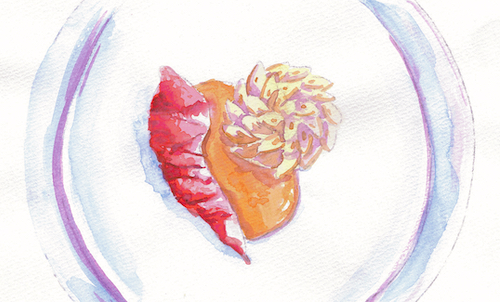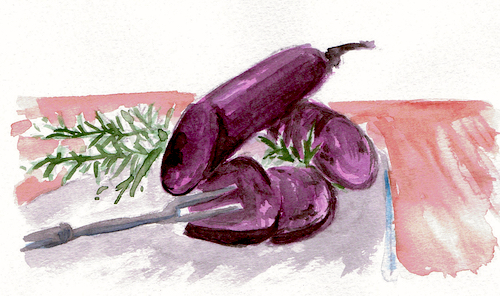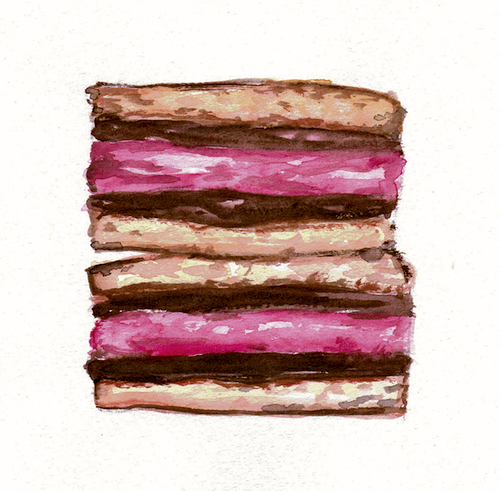
My interview with a former executive chef of a NYC restaurant
Greg has a crazy big beard and a long, monochrome octopus tattoo running up the length of his arm, but underneath his guise of being a wild artist is an incredibly disciplined and meticulous man who is unafraid of hard and demanding work.
Graduating from Wesleyan University with a bachelor’s in economics, Greg Proechel first went into finance before making the switch into working in a professional kitchen. He’s worked at Eleven Madison Park, also known as the best restaurant in the world, as well as at the Michelin star-rated NYC restaurant Blanca as sous chef. He then moved on to work as executive chef at Le Turtle in NYC, and then opened his own restaurant Ferris in 2017. He currently runs his own hospitality consulting group, Pulpo Hospitality, which works with clients to advise on restaurant building, branding, and construction.
As I meet and talk to more people, I find that there are those who stumble into their careers, those who grow into it, and then there are people like Greg, who see it as their life’s calling– something they could never not do. The parallels he drew between his own desire for mastery and Japanese food made it clear to me why he loves it so much.
Finding Purpose
How did you go from economics to the culinary world?
“You go from an industry that generally makes money to an industry that does not, so that makes it a little difficult, but food’s always been a very special part of my life growing up. I actually wanted to go into cooking right after college, but I figured I would at least give my degree a try. I did finance for about two and a half years but to be honest, the entire time I was thinking about getting into the food industry. So one day I quit my job and went to culinary school, and that was that.
My first real restaurant experience was an externship at Eleven Madison Park. That was the best possible thing I could have done, because it was a proving ground. The way I look at it, working in a kitchen is a team sport. I played football at Wesleyan and I’ve played sports my whole life, and I think the two crossover very strongly. If there’s one bad player, everyone knows it and you feel it. It’s big into teamwork, and that’s something that I’ve always liked.”

Take Action, Every Day
When you were serving as executive chef, was your menu heavily influenced by what you ate when you were younger?
“Growing up my grandparents had a place in Vermont in the middle of nowhere, and when we would visit, my grandparents would always serve us really good food. Some kind of charcuterie, some cheese, and always some really good bread. Every morning. One thing we would also often have is blood sausage. It was very strong, very iron-y, and the texture was very weird. And I didn’t like it so much back then because I just found it kind of disgusting.
Later on though, I started messing around with it at Le Turtle, because I wanted to make a version of it that I thought was really excellent. A perfected version of blood sausage that you could eat without having to be weird about it. I remember that the owner was like, why is there blood sausage on the menu? No one likes blood sausage. But then Pete Wells, a reviewer for The New York Times, gave us a really positive two star review and he specifically talked about the blood sausage, saying that I’m making the most exciting blood sausage in the city. So that was a really special moment. Because, A, someone told me that I could never do it. And B, it was also a nod to growing up, and being able to take that ingredient I didn’t like and create an amazing dish out of it.”

“But also, you end up taking inspiration from everything you eat. I recently went to Japan about a year ago, and that was a big shift. There’s sometimes certain things I see, even to this day, that immediately brings me right back to the time I spent in Japan. Every time I see eggs now, I immediately go to the tamago-yaki I had right outside Tsukiji market. It’s like one hundred yen, I think that’s like 90 cents, and it was like one of the best egg dishes I’ve ever had in my entire life. So you know, it was great to go to Japan, but I feel like it ruined me on so many things. Now, if I don’t have that egg, nothing can compare to that.
But that’s also something I really like, is when you get to have the best thing you’ve ever had, and try to beat it. Whenever I go to a Japanese restaurant, I will always get tsukune. Every single time, no matter what, because I love it and I want to try every single one that is possible. I need to see why it’s better, to see what makes this one different.”

I know that one of your famous menu items at Ferris, was the katsu sando.
“Yes, the katsu sando. It’s funny because we were just changing the menu one night at the restaurant, and it was late and I was probably a little bit delirious from working so much. I also had two glasses of a really good French chardonnay and I was a little buzzed, feeling really good. We had a good Iberico pork in, and so I made it as a cutlet and ate it with a piece of bread with some really quick sauce. I think I may have made it because I saw something about katsu sandos being popular recently, but I always want to do something a little bit different. I knew no one was doing it with Iberico pork and no one’s doing it served medium rare, so I made it and gave it to my sous chef and operator. And they were like, oh, my god.
As soon as we could, we put it on the menu and it just kind of blew up. It was very cool to have a breaking the Internet moment because it was everywhere. It made like, “The Best Things You Should Have Eaten” or “Best Food in NYC” in Time Out New York that year.
Defining Mastery
Besides the ingredients, what do you derive from Japanese cuisine that you bring into your own restaurant?
It’s just the care, even the idea of doing one thing your whole life and being the best at that is something you don’t see everywhere else. I mean, you look at Golden Gai (a small nighttime food market district in Tokyo) where it is literally alleyways filled with people just doing yakitori. That’s all they do. Just a few people making yakitori, and I could eat that every single day of my life and be extremely happy. I don’t think everyone’s like me, but the nice thing is, I think there will always be space in the restaurant and food industry for those chefs that really want to do something different and really perfect a new skill, and that’s why I love this job. That to me is the purpose of being alive, just learning and getting better at something every day.


If you enjoyed this article, please let me know at kokumura@kakikata.space! I try to bring together and share ideas on food, health, and Japanese lifestyle to help others in their own journey to enrich their own well-being.
Warm regards,
Kaki 🌱